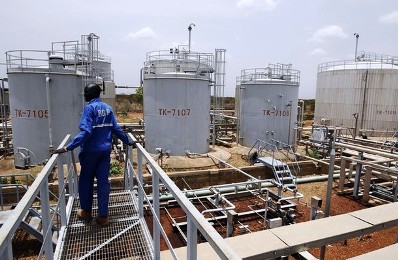Sudanese petroleum minister discusses oil cooperation in Juba
August 7, 2015 (KHARTOUM) – The Sudanese Oil and Gas minister Mohamed Zayed Awad has downplayed the adverse impact on oil fields from the ongoing conflict in South Sudan.

He told reporters upon arrival that the two warring parties in South Sudan are aware that causing any damage to oil fields would harm all sides.
The Sudanese minister stressed the continuation of cooperation between Juba and Khartoum in the domain of oil, pointing to the distinctive agreement between the two nations on oil.
He emphasized that the two oil ministries would meet to discuss ways to optimize benefits from the oil agreement, expressing his gratitude to South Sudan for the continued cooperation on supplying oil to the Um Dabakir power plant and Khartoum oil refinery in Sudan.
“Khartoum would supply Juba with equipments, fuel and other materials in order to promote oil production in blocs 1, 2, 3, and 7,” he added.
There was no mention of attempts by Juba to renegotiate oil fees given the drop in global prices.
Juba pays Khartoum $25 per barrel for oil transported through the latter’s territory.
The South Sudanese oil minister, Stephen Dhieu Dau, for his part expressed his delight for the visit of Awad saying they welcome cooperation between the two countries in all fields.
Last May, Dau said oil production in Fuloj oil filed in the Upper Nile state was not affected by military confrontations between the government army and the armed opposition in Melut, denying the latter had captured the oil refinery.
Awad has earlier revealed that Sudanese security forces had dug trenches around oil fields on the border with South Sudan to fend off acts of sabotage.
“The trenches will protect the oil fields from sabotage,” Awad was quoted as saying by the state-owned Sudan Vision daily
South Sudanese rebels had in the past controlled several oil fields forcing Khartoum to rethink about exporting the southern oil through its territory particularly in light of its diminishing revenues.
Fighting erupted in South Sudan on 15 December 2013 when internal debate over democratic political transformation and reforms within the leadership of the ruling party turned violent, plunging the country into national crisis and civil war.
(ST)
